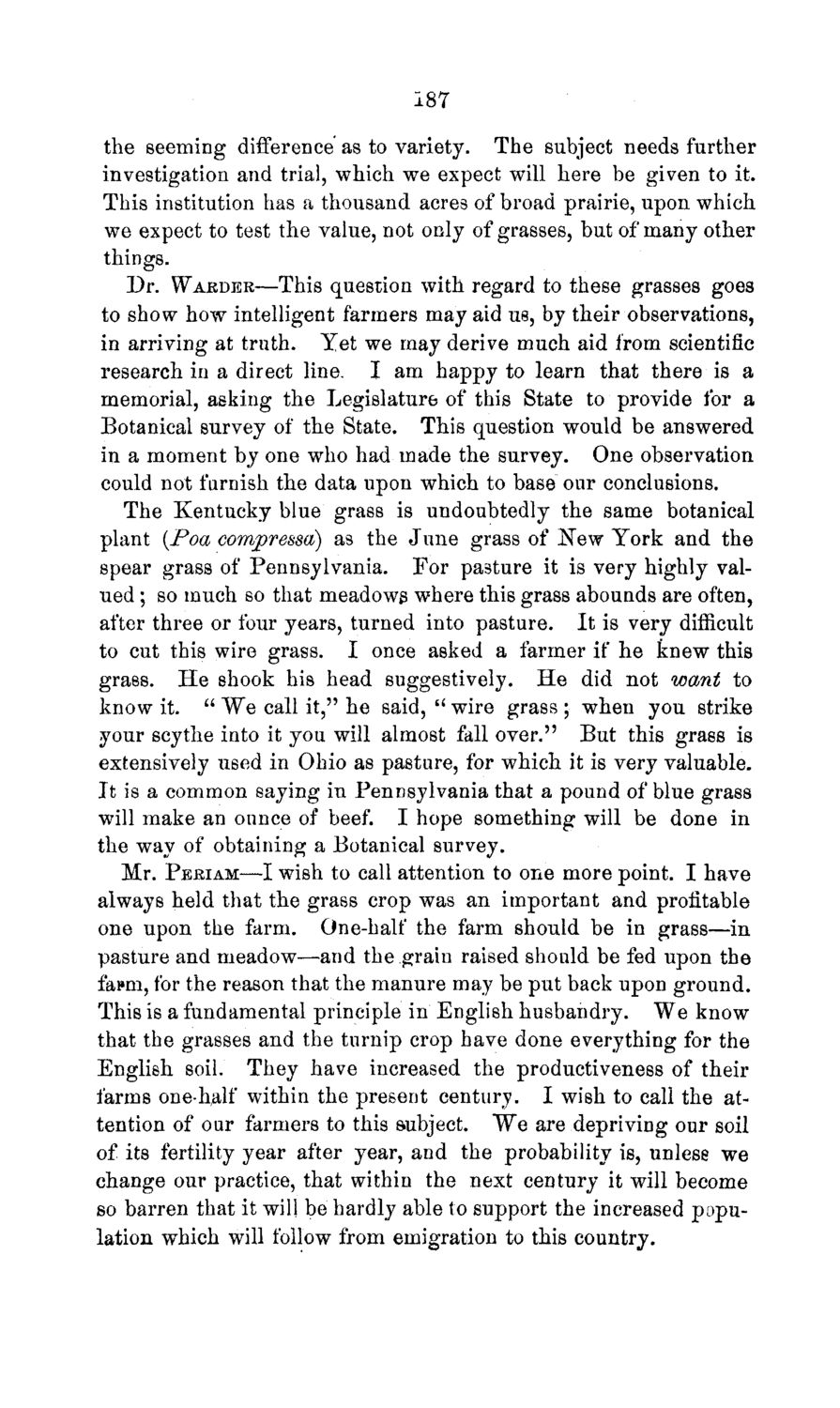| |
| |
Caption: Board of Trustees Minutes - 1869
This is a reduced-resolution page image for fast online browsing.

EXTRACTED TEXT FROM PAGE:
187 the seeming difference as to variety. The subject needs further investigation and trial, which we expect will here be given to it. This institution has a thousand acres of broad prairie, upon which we expect to test the value, not only of grasses, but of many other things. Dr. WARDER—This question with regard to these grasses goes to show how intelligent farmers may aid us, by their observations, in arriving at truth. Yet we may derive much aid from scientific research in a direct line. I am happy to learn that there is a memorial, asking the Legislature of this State to provide for a Botanical survey of the State. This question would be answered in a moment by one who had made the survey. One observation could not furnish the data upon which to base our conclusions. The Kentucky blue grass is undoubtedly the same botanical plant {Poa compressa) as the June grass of New York and the spear grass of Pennsylvania. For pasture it is very highly valued ; so much so that meadows where this grass abounds are often, after three or four years, turned into pasture. It is very difficult to cut this wire grass. I once asked a farmer if he knew this grass. He shook his head suggestively. He did not want to know it. " W e call it," he said, "wire grass ; when you strike your scythe into it you will almost fall over." But this grass is extensively used in Ohio as pasture, for which it is very valuable. It is a common saying in Pennsylvania that a pound of blue grass will make an ounce of beef. I hope something will be done in the way of obtaining a Botanical survey. Mr. PERIAM—I wish to call attention to one more point. I have always held that the grass crop was an important and profitable one upon the farm. One-half the farm should be in grass—in pasture and meadow—and the grain raised should be fed upon the fapni, for the reason that the manure may be put back upon ground. This is a fundamental principle in English husbandry. We know that the grasses and the turnip crop have done everything for the English soil. They have increased the productiveness of their farms one-half within the present century. I wish to call the attention of our farmers to this subject. W e are depriving our soil of its fertility year after year, and the probability is, unless we change our practice, that within the next century it will become so barren that it will be hardly able to support the increased population which will follow from emigration to this country.
| |